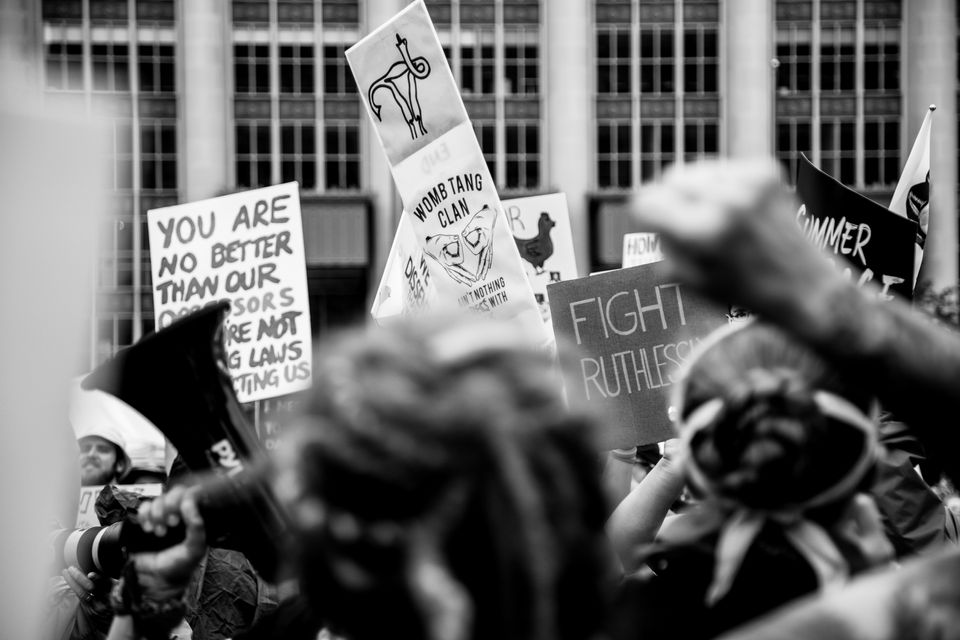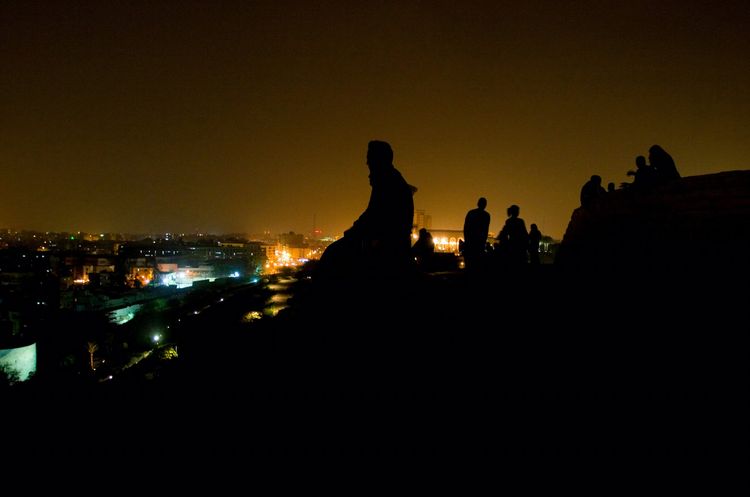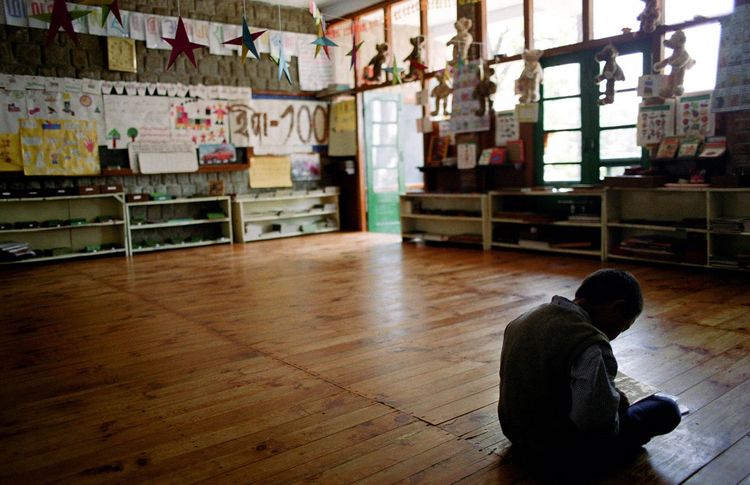Our Story of Separation

Written & self-published in 2020.
What is our society’s story of separation? How is the separation of individuals impacting your daily life? Is this something that crosses your mind as a problem– as the FUNDAMENTAL problem– we face as a collective at this juncture in our realities?
I recently splurged on a Commune membership (it’s not expensive, but everything is a “splurge” these days) for two reasons– lots of yoga and health courses and a new course called Political Hope by one of my favorite authors, Charles Eisenstein. I’m only two lessons deep, but he is talking about our collective “separation” as the fundamental dysfunction on our political discourse.
He posed the question, a question he’s spent most of his life’s work trying to answer, “what is the origin of wrongness in the world?” Is it greed? Is it money? Is it wealth? Is it evil?
One common thread that surfaced in his search for the answer is separation. Basically, since the industrial revolution and slightly before, we’ve evolved into a society that thrives on being separate- being apart from one another. And the distance between ourselves and our neighbors has amplified in recent years with televisions, streaming services, iPhones and screens.
I’m a child of the 70s and 80s. We played outdoors– always. The television was something we gathered around together as a family a few times a week to watch a sitcom before bed. Technology never dominated our lives. And we spent our days playing with friends and neighbors. Always. We rarely spent time alone in our homes isolated from the outside world.
I’ll be the first to admit, I enjoy my alone time now. But every day, before this pandemic hit, I would travel to a coffee shop to be surrounded by a community. No matter where I was in the world. I love to sit amongst the thriving vibrations of community, even though I’m an introvert. The gathering of humans soothes my soul and lets me know I’m apart of this human experience. And being welcomed into my everyday coffeeshops by people who know my name and how I take my espresso gives me a deep sense of belonging.
But this story of separation that Eisenstein focuses on in this course resonates deeply. The separation is applicable to so many issues we struggle with as a society.
I first discovered his work years ago when I was researching the Gift Economy. I’m fascinated by alternative economics and creative ways to approach the exchange of value between two people. It’s one of the reasons cryptocurrency still enthralls me. Here’s a completely recent and technological creation that powers value exchanges around the globe.
The basic premise of the Gift Economy is that we no longer place a monetary requirement on value exchange between two people. I discovered the concept while conducting research for my website business about 8 years ago. A web designer in Pennsylvania shifted his entire business to a “gift only” approach and supported his family of four from his work. He would handle the client project the same as a traditional assignment, but the invoice would show his hours worked, the monetary value of those hours and a Zero amount due. The client who received the website as a gift was then able to reciprocate in ways that reflected the value they received from the transaction, using a multitude of value exchanges including, but not limited to, money. The client knew this was the process from the start. I was completely enthralled by this concept. Eisenstein wrote a fascinating book called Sacred Economics that explores this type of value-based transaction as it was used in other cultures throughout time.
In the Commune course’s second lesson, Eisenstein talks about the story of separation as it applies to money. He makes the observation that our story of money is embedded in the story of separation. In our current capitalistic economic modality, competition and scarcity are baked into the system. A “more for you equals less for me” is a core concept that has seeped into every aspect of our economic system. Hell, we’re seeing this play out in real-time. A person’s life is not worth more than the ability to reopen the economy. Our teachers, grocery clerks, servers, doctors, nurses, migrant workers and more are being asked to sacrifice THEIR LIVES so this economy can reopen. And the current debates around aid for the millions of workers whose jobs have forever vanished revolve around scarcity. Less for you so we can send more to corporations.
The monetary system as we know it is an engine for growth. Our system exploits nature and converts those natural resources into products. We take relationships and convert them into services.
The story of separation is embedded deeply in our story of money. Imagine the Utopian society we could create if we simply removed “separation” from our systems? If we removed the theory of scarcity from our economics. If we removed the separation between ourselves and nature– between ourselves and our neighbors.
What we’re exploring here is not a typical conversation. I get that. His work is asking us to wander through theories and concepts that are almost never spoken of in our society-- not in classrooms, over dinner tables or in coffeeshops. Such ideas are seen as Utopian and unrealistic.
But what if now is the time to explore these concepts. What if, during times of great economic and social upheaval, we lean into these alternative approaches to how we view the institutions we are now being asked to live and die by.
I discovered UBI (Universal Basic Income) about 4 years ago while doing some cryptocurrency research. I love the concept and dove deep into the research and successful experiments. Last year, Andrew Yang ran for president and injected UBI into the political conversation. When the pandemic hit, the countries who successfully navigated the first wave of the virus implemented a UBI for their vulnerable citizens and protected their economies. We did not. Those countries are mostly reopened and navigating the ups and downs of the virus without completely destroying their economies and without large death counts. We are not. We are staring down a massive wave of evictions this month, 30+ million people are unemployed with many jobs never returning and predictions that hundreds of thousands of small businesses will close soon or have already shuttered forever. Yelp is reporting that 55% of restaurants using the app temporarily closed in the spring and are now reporting permanent closures. That’s over 72,000 businesses as of late July. We chose wrong. And we lost.
We chose separation. We chose not to protect our neighbors and our communities. We chose to let our small business fail as major corporations rake in massive profits and billions in government aid. Amazon made $18 Billion– with a B- last Monday.
Eisenstein makes the point that the human separation from nature removes agency from sentient beings. And I agree. When we’re separated from the destruction of a rain forest in Brazil to harvest palm oil, it makes it easier to consume the almond butter with palm oil in it. We don’t hear or feel the destruction of those sentient beings leaving this planet.
The same can be said for our fellow humans. The more we remain separate from one another, the easier it is to remove agency from one another, the easier it is to dehumanize our neighbors and ask them to sacrifice their lives so we can survive. The more isolated we remain, the easier it is to look away when our community is snatched away by poverty, racism or fascism.
It doesn’t have to be this way. Maybe now we can step into a period of asking these difficult questions. A time of pursuing alternative approaches to our way of living. A time of removing the story of separation from our lives.
A time to do the hard work of collective action to survive the difficult times we are rapidly approaching (and already living through in some cases). Do we have the willpower to step out of the scarcity approach to modern economics and say “some for you, some for me, some for the collective” and live a life that flows with nature instead of exploiting it?
Are we capable of such radical change? Or will we stay in our living rooms and watch the collapse on our televisions and timelines, wondering why no one did anything to change our story?
Resources
Here’s the course on Commune that inspired this post. This is an affiliate link (helps keep the lights on), but there’s a free 14 day trial too! Tons of juicy courses and content on the Commune platform.
Political Hope with Charles Eisenstein
Political Hope is a 10-day course that confronts our greatest fear: What happens if “our side” wins the election but nothing changes?
And here’s the website for Eisenstein and Sacred Economics.
UBI Links
Finnish basic income pilot improved wellbeing, study finds | Society | The Guardian
First major study of scheme comes as economic toll of coronavirus prompts fresh interest in idea
Why Andrew Yang's push for a universal basic income is making a comeback
As coronavirus cases continue to reach new heights in the United States, the push for a universal basic income is more tangible than ever before. Andrew Yang discusses the need for a UBI to combat the effects of the pandemic and gives insight into his work to influence American politics.



Member discussion